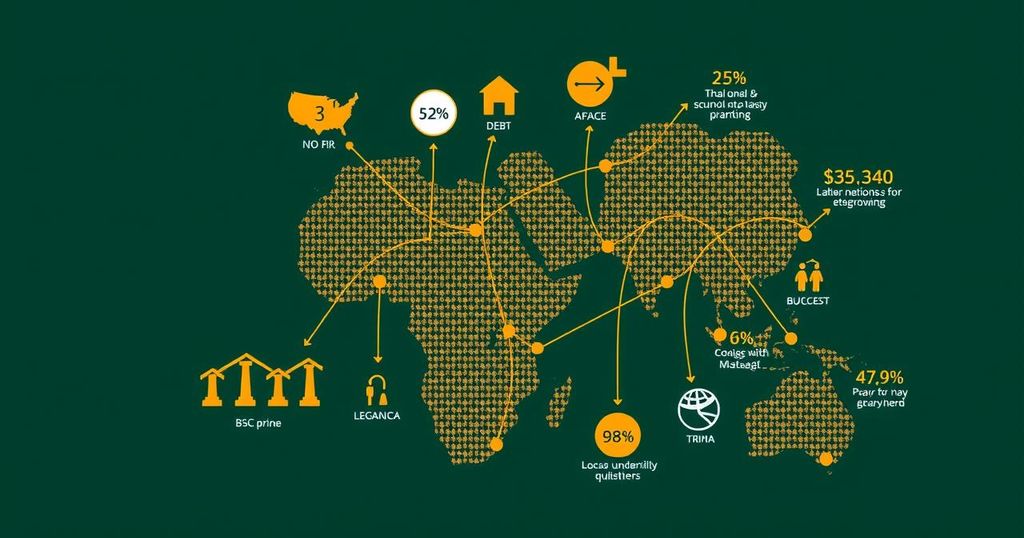The Debt-Education Nexus: Insights from Zimbabwe, Eritrea, South Sudan, and South Africa
This article examines the intricate relationship between public debt and education in Zimbabwe, Eritrea, South Sudan, and South Africa, highlighting how debt burdens hinder educational access and quality. The analysis underscores the need for effective debt management strategies aligned with international frameworks to promote educational investments and address systemic issues stemming from corruption and governance failures.
The intricate relationship between public debt and the right to education is critical, as we explore in the cases of Zimbabwe, Eritrea, South Sudan, and South Africa. Economic policies and fiscal constraints significantly influence educational access and quality. In Zimbabwe, hyperinflation and mismanagement have led to severe underfunding of schools, with many rural young people facing barriers to education due to inadequate infrastructure and teacher training. Eritrea’s focus on self-reliance and military spending has limited educational opportunities, while South Africa continues to struggle with educational inequities stemming from its apartheid past, compounded by financial pressures and corruption. South Sudan’s educational system is extremely compromised due to conflict, corruption, and misallocation of resources despite considerable oil revenue. The need for effective debt management and governance to bolster educational investment is an overarching lesson across these nations.
The global context underscores the importance of international frameworks such as the International Covenant on Economic, Social and Cultural Rights (ICESCR) and the United Nations’ Sustainable Development Goals (SDGs), particularly emphasizing education as a fundamental human right. Article 13 of the ICESCR mandates states to guarantee the availability and accessibility of education for all, which should guide countries in their debt management strategies. The SDGs call for equitable quality education, necessitating a rebalancing of fiscal policies to protect educational budgets during times of economic strain. Furthermore, integrating community engagement in budgeting could enhance accountability. Ultimately, this analysis highlights the necessity for policymakers to pursue comprehensive fiscal reforms and anti-corruption measures to prioritize education and promote sustainable development.
The relationship between public debt and education is an essential concern in many developing nations. Countries like Zimbabwe, Eritrea, South Sudan, and South Africa illustrate the detrimental effects of debt on educational access and quality. Factors such as economic mismanagement, allocation of resources, and the ongoing influence of corruption undermine the capabilities of these nations to fulfill their commitments to education. The situation in these countries reflects a broader need for improved debt management strategies that reconcile financial obligations with the provision of essential public services, particularly education.
In summary, the relationship between debt and education is complex yet crucial. The cases of Zimbabwe, Eritrea, South Sudan, and South Africa reveal that inadequate governance and financial constraints significantly impede access to quality education. Addressing these issues through strategic fiscal reforms, robust anti-corruption measures, and prioritizing educational investments presents a pathway towards a more equitable society. It is imperative for policymakers and international partners to collaborate and ensure that education remains a priority, even amidst pressing debt challenges.
Original Source: www.amnesty.org




Post Comment